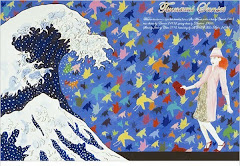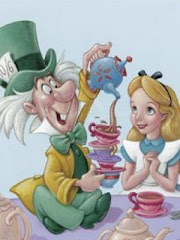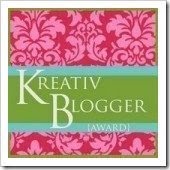I'm reading and adventuring, so that you don't have to. You can just read about my experiments and then decide whether you want to embark on similar ventures. It's a service I'm offering you. Really. It's kind of like Fear Factor. Dare me! I'll try it! I have no fear.
Unlike Fear Factor, however, I haven't been drinking rancid meat cocktails or diving into piranah invested waters. Instead, I've been trying out new stuff in the kitchen. Culinary adventures.
Here's an update of sorts:

Since I started making my own yogurt, I've been looking for something to do with all of the leftover WHEY. Homeade yogurt is a bit runnier than store-bought, so I like to strain my runny yogurt, which results in the awesomest, thick, rich, Greek-style yogurt. You can make your own Greek-style yogurt or even yogurt cheese by just plopping it in a strainer lined with coffee filters. A bowl underneath catches all the whey as it drips out. The longer you leave it straining, the thicker the yogurt gets until- VOILA- you have CHEESE!
Anyways, I think it's a shame to just toss the remaining whey puddle. So I checked out a few books on Lacto-fermentation. That's where you use whey to ferment food- change it radically- and wonderfully.
Just think of all you love that relies on fermentation: WINE, BEER, CHEESE, BREAD!!!! But I wasn't familiar with Lacto-fermentation, so I decided to get me some edumacationz on the subject. If you're interested, check these books out (or don't, because I already did it for you, remember!):
Nourishing Traditions by Sally Fallon. This book really opened my eyes. It's partially a very thorough textbook on nutrition, at times delving into biology. It's also a cookbook, with simple recipes on making your own mayonnaise and salad dressing, to more advanced stuff like pickling (with WHEY!). In the picture above, you can see jars of my own Lacto-fermented cukes and carrots. I'd like to report that they are as delicious as they look. But that'd be a bald-faced lie. Sadly, these were not what I'd hoped for. But I'll totally try, try again. The subtitle of Fallon's book is, The Cookbook that Challenges Politically Correct Nutrition and the Diet Dictocrats. So it's partially a critique of low-fat, low-carb, vegetarian, and vegan diet know-it-alls. But honestly, I found Sally's tone to be a bit preachy and dictocratic herself. It bugs me when people speak with such aggressive certitude. But, le sigh, we all have our flaws, ironies, contradictions... With that said, I'll probably still invest in a gently used copy of this book because it is so chock full of information. And she quotes the Little House books! I will have to do a seperate post on my undying love for all things Laura Ingalls Wilder. Love you, Half-pint! Blowing you kisses, Michael Landon!
Wild Fermentation by Sandor Ellix Katz was right up my alley! Katz, an HIV/AIDS survivor who lives in a commune in the woods, began healing himself by incorporating wildness (in the form of live-culture food) into his body. From his website he explains what is so wild about fermentation, "Wild fermentation is a way of incorporating the wild into your body, becoming one with the natural world. Wild foods, microbial cultures included, possess a great, unmediated life force, which can help us adapt to shifting conditions and lower our susceptibility to disease. These microorganisms are everywhere, and the techniques for fermenting with them are simple and flexible." There are recipes for saurkraut, kimchi, miso, tempeh, and plenty o' brews. A common theme between Wild Fermentation and Nourishing Traditions, is the connection to the past that we can rediscover through food by using these 'primitive' techniques. Nothing much more old-school than the slow-food movement.
Canning and Preserving with Ashley English. Beautiful book! I mean it. If you like looking at fantastically ripe, gorgeous, seasonal vegetables and fruit, this book could very well be your new porn. She seperates the book by seasons and encourages you to can and preserve according to what is currently in season in your area. She explains and illustrates canning techniques thoroughly for the newbie. She has basic recipes for pickling and such, but she goes way beyond with recipes for exotic chutneys, marmalades, and sauces. Lip-smacking! She also has a great blog, another book on keeping chickens, and one about tending bees coming out soon too. In other words, I want to be Ashley when I grow up. Don't be misled, Ashley doesn't do Lacto-fermentation.
For Mother's Day, it snowed here in Syracuse. All. Day. Long. But on the bright side, my dear husband gifted me two wonderful books. Artisan Bread in Five Minutes a Day by Zoe Francois and Jeff Hertzberg, which I've previously mentioned on this here blog. And Home Cheese Making by Ricki Carroll (this is the Bible for cheese makers!). Needless to say, I'll be busy in the kitchen.












4 comments:
I heard the Artisan bread people on NPR and they were awesome. I also thought I would be making my own artisan bread, but, alas, I never got the book! Your post is very seductive, though. Perhaps there will be some wild food in my future!!! Yum!
Hi Maddy, that was Shelayna before. I was signed in as Richard! Sorry! I hope you had a great day!
Fermentation RAH RAH RAH!
Ha ha! Shelayna, thanks for reading! I love your blog! ; )
Yes, Patti, 3 cheers for FERMENTATION! ; )
Post a Comment